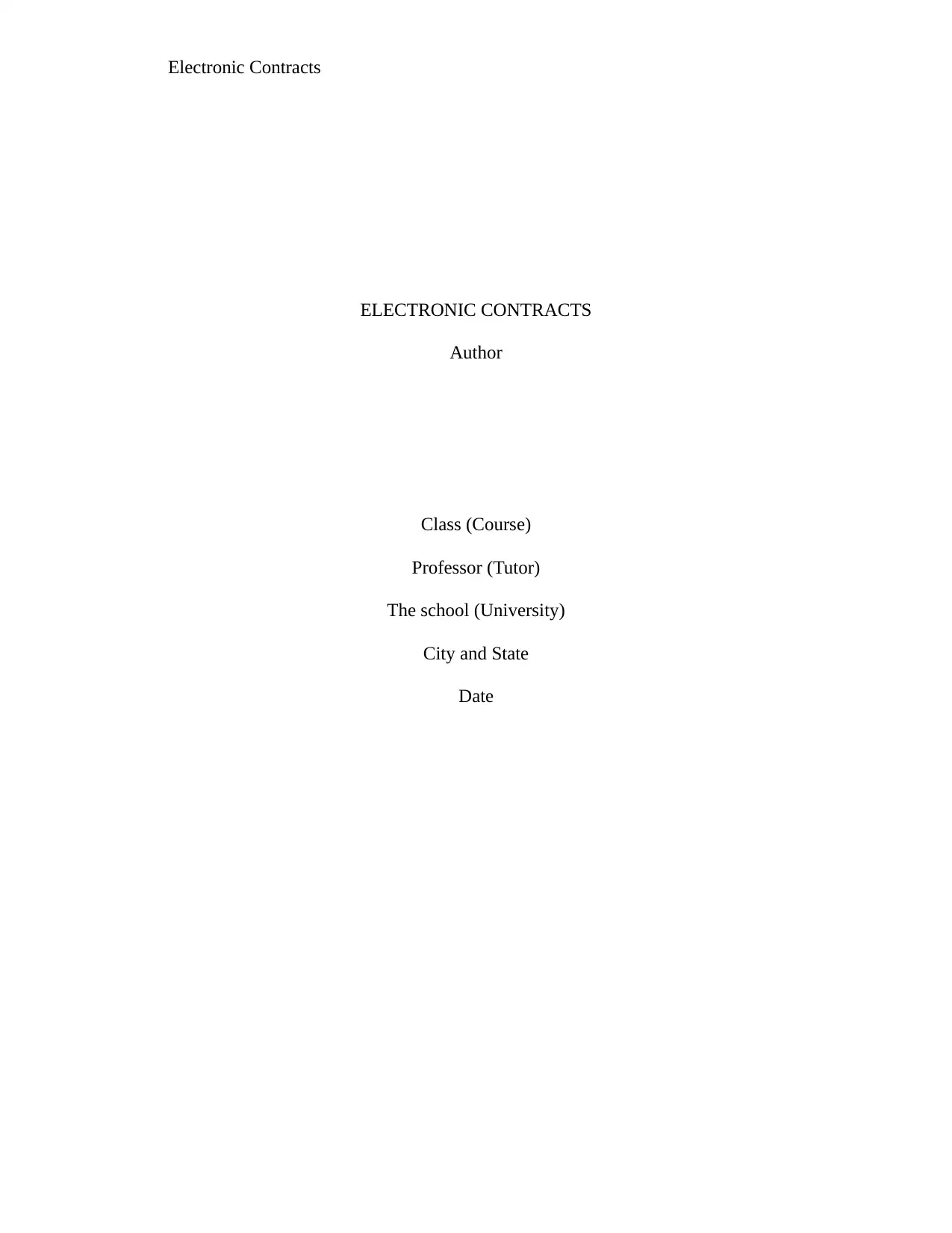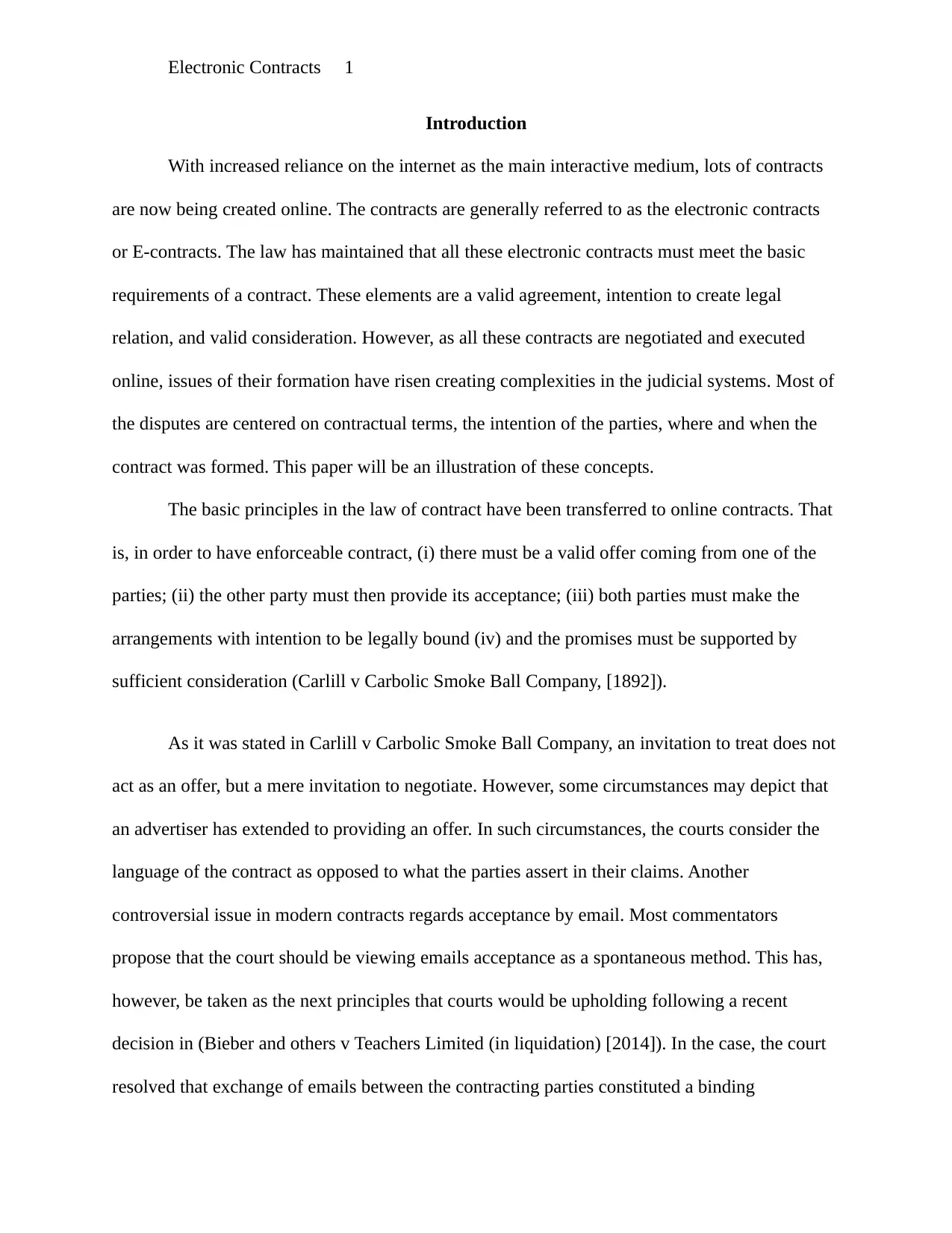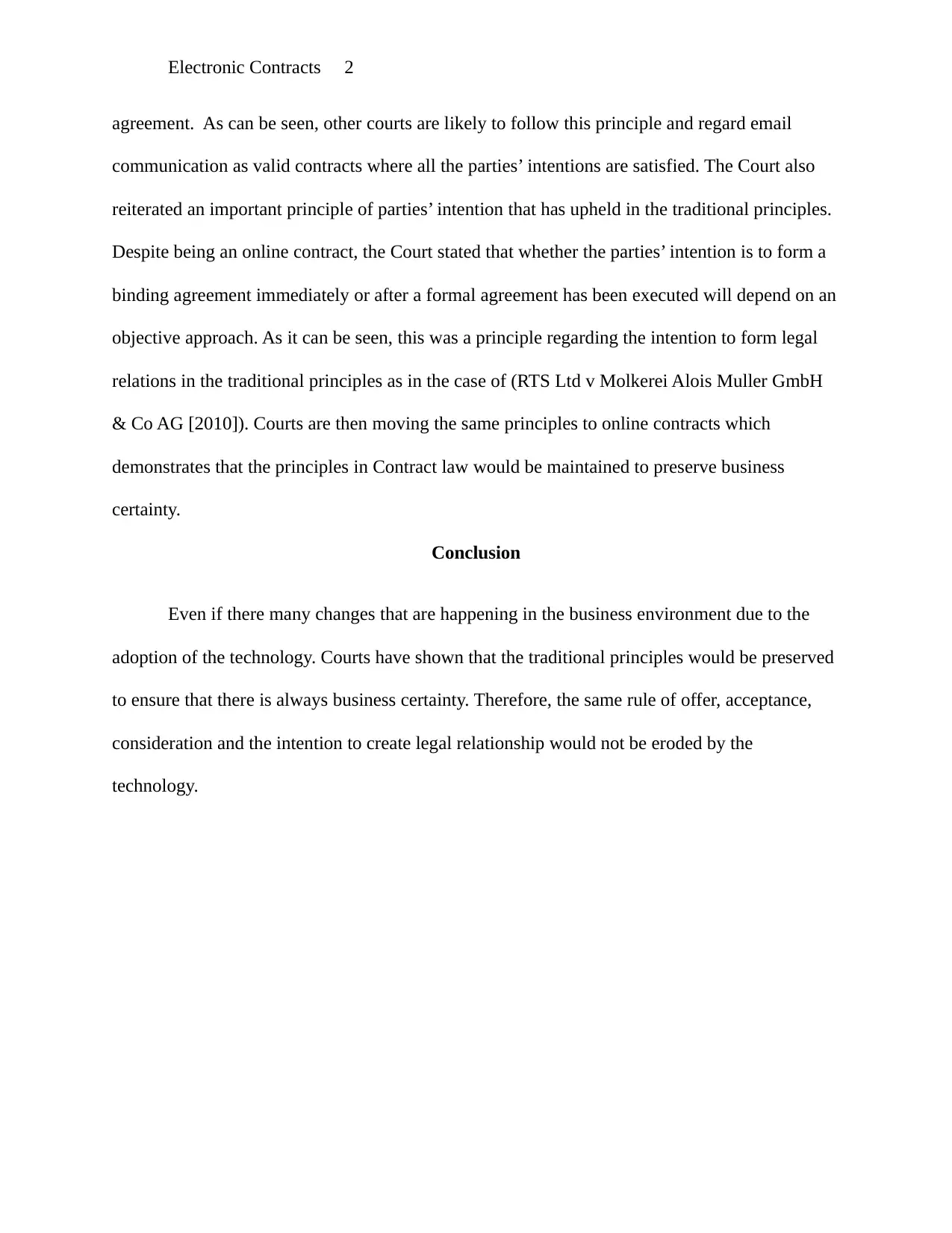Electronic Contracts: Principles, Cases and Analysis
VerifiedAdded on 2022/12/30
|4
|671
|43
Report
AI Summary
This report provides an overview of electronic contracts, also known as e-contracts, examining their formation and legal principles. It explores the essential elements of a valid contract, including offer, acceptance, consideration, and the intention to create legal relations, highlighting their application in the digital realm. The report discusses the complexities that arise in online contract formation, such as determining the timing and location of contract formation. It references key case laws like Carlill v Carbolic Smoke Ball Company, Bieber v Teathers Ltd, and RTS Ltd v Molkerei Alois Muller GmbH & Co AG to illustrate how traditional contract law principles are applied to electronic contracts. The analysis covers the evolution of how courts view email acceptance and the importance of parties' intentions in forming binding agreements. The conclusion emphasizes the preservation of traditional contract law principles to maintain business certainty in the face of technological advancements. The report serves as a comprehensive guide to understanding the legal framework governing electronic contracts.
1 out of 4











![[object Object]](/_next/static/media/star-bottom.7253800d.svg)